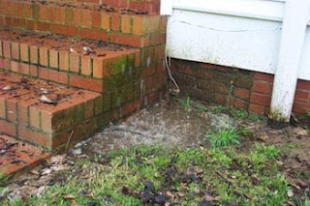When recently surveyed, over a third of real estate agents reported having had one or more home sale contracts fall out of escrow per month. Autopsies of these dead deals often surface a truly lethal culprit: appraisals that come in below the agreed-upon purchase price.
You see, mortgage lenders will only fund transactions up to a certain percentage of the appraised value of the home. If the home appraises low, either the buyer must come up with an increased down payment amount, the parties must agree to a price reduction, some combination of both of these must happen, or the deal is off.
While low appraisals can be particularly potent deal killers, their danger to your deal can be neutralized in some cases. If you find yourself facing an appraisal lower than the sale price in the contract, add these five steps to your immediate action plan.
1. Appeal errors or bad comps to the appraiser. Read the entire appraisal report, cover to cover. See if you spot any errors – it’s not at all unheard of for an appraisal report to miss a bedroom or underreport the home’s square footage. The trouble is that what starts out as a clerical error can often result in the application of the wrong “comparables” when it comes time for the appraiser to pick the properties to use as benchmarks of your home’s fair market value.
Whether or not you find actual errors in the details about the home you’re buying or selling, check in with your agent about whether the comparable properties used by the appraiser were reasonable, especially if they are from a different neighborhood, school district, town or construction era than the home you’re trying to buy or you are aware that much more similar or nearby homes have been sold in recent times than the comparable properties you see in the appraisal.
In my town, for example, within a half-mile radius you can find vast variations in property values based on neighborhood and schools and city limits that change almost imperceptibly. Changes in the mortgage industry over the last few years have created situations in which appraisers are sometimes assigned who have little or no familiarity with these hyperlocal types of nuances which you, as a party to the transaction, might be more readily able to detect and appreciate.
If you find errors or feel that there are much more comparable recent sales that justify a higher price for the property, work with your agent to send the correct information and the applicable comps you would propose to your mortgage professional, who can relay that information to the appraiser or Appraisal Management Company and request that the appraiser revise their report and estimate of value. The appraiser has no obligation to make the change, but the more glaring the error, the more likely it is that they will.
2. Ask for a second opinion. Particularly in cases of error or bad comps, if the appraiser ignores your request to revise the report, you might need to escalate your request to the lender itself. Here’s where it’s important to be working with an expert agent and mortgage pro with a great reputation; if they believe strongly in your case, they may be able to plead it to the underwriter and request that a second appraisal be done. The idea here is that if the second appraisal backs up your arguments, listing the correct property details or more accurate comparables, the lender is much more likely to exercise its discretion to deem the first one a dud and go with the second opinion.
3. Renegotiate. Low appraisals disappoint everyone around the negotiating table. If the sellers have the leeway (read: equity) or their bank agrees (in short sales), they might agree to bring the price down to the appraised value or near enough that the buyer feels comfortable putting some extra cash into the deal to close the purchase price-to-appraised price gap. Some buyers refuse to ever do this on general principal, as they feel like it’s overpaying for the property. Others realize that appraisals may come in low for reasons less indicative of the property’s value, like a dearth of comparable sales in the area, and figure that to get the home they want, they’re willing to kick in a little extra dough.
Of course, ‘little’ is relative, and neither position is right or wrong for everyone.
And the decision for sellers is just as personal. When the differential between the purchase price and the appraised value is small, it can seem like a no-brainer to bring the price down if mortgage considerations allow, but it can also seem sensible to request the buyer to make up such a small difference – especially in markets where properties are getting multiple offers. On the other end of the spectrum, when the differential is big, it is less likely that the buyer will want to come up with the cash to close the gap, and also less likely another buyer will come along and offer the appraised price.
You would think these things would make a seller more willing to slash the price where the gap is big, but it also may make their moving plans less feasible, and tempt them to stay put and wait on the market to be more active and bear better comps.
Work with your agent to figure out what re-bargaining position really works for you.
If you do find yourself renegotiating price due to a low appraisal, remember that this is real estate, so everything is back on the table. For example, when the appraisal gap is only $1,000, a buyer might be willing to close the gap if the seller agrees to leave the lawn mower and do some small repairs.
4. Pay the difference or split the difference. On the flip side of renegotiating is reconsidering your personal position. If you’ve been house hunting for two years, forgoing low rates and the tax and lifestyle advantages of owning your home, and you’ve finally found ‘the one’ – in great condition, not a short sale, perfect location – you might think long and hard about whether you are willing to pay the difference between a low appraisal and the purchase price. This is especially so when the gap is small and you have the cash, or when you know the seller is barely breaking even on the deal or has offered to split the difference with you, or the short sale bank refuses to go any lower.
And sellers, this goes for you, too: if you’re committed to trying to close the deal, it behooves you to consider whether you can reduce the price on the home. Consider that in some states and loan situations, a low appraisal report in a deal that dies may become a disclosure the seller must provide to future buyers (ask your agent whether this will apply to you). The fact is, if you don’t agree to a price reduction of some sort, the buyer could very well walk, limiting your options to selling at a lower price, doing a short sale or staying put anyway.
5. Change lenders. Mortgage banks have more control when it comes to choosing appraisers than mortgage brokers do. (Fortunately, many experienced local mortgage brokers work for companies that also have banking divisions, and may be able to process your loan through that division in an effort to get your transaction a fresh start and work around a low appraisal. Ask your mortgage broker if their office has a banking division, if you’re not sure.)
Mortgage brokers are no longer able to hand-pick appraisers for a given transaction like they once could, but unlike broker-only firms (who are forced to work through a middleman company that may pay a cut rate, attracting less experienced appraisers), mortgage banks and hybrid broker-bankers are allowed to pick the set of people included on their own short list of appraisers. I’ve found that lenders use this short list for good much more often than to try to exert any sort of inappropriate influence.
My experience has been that, when compared with the appraisers national lenders and the middleman companies put to work on brokered transactions, small mortgage banks and local, hybrid broker-bankers tend to fill their lists with appraisers who have more local experience and can appreciate the uber-important local nuances like those described in #1, above.
Agents: What are some other low-appraisal workarounds that have worked for you and your clients? How do you help buyers and sellers decide what moves to make when the appraisal comes in low?
Source: http://www.trulia.com/blog/taranelson/2012/02/5_next_steps_when_the_appraisal_comes_in_too_low
1. Appeal errors or bad comps to the appraiser. Read the entire appraisal report, cover to cover. See if you spot any errors – it’s not at all unheard of for an appraisal report to miss a bedroom or underreport the home’s square footage. The trouble is that what starts out as a clerical error can often result in the application of the wrong “comparables” when it comes time for the appraiser to pick the properties to use as benchmarks of your home’s fair market value.
Whether or not you find actual errors in the details about the home you’re buying or selling, check in with your agent about whether the comparable properties used by the appraiser were reasonable, especially if they are from a different neighborhood, school district, town or construction era than the home you’re trying to buy or you are aware that much more similar or nearby homes have been sold in recent times than the comparable properties you see in the appraisal.
In my town, for example, within a half-mile radius you can find vast variations in property values based on neighborhood and schools and city limits that change almost imperceptibly. Changes in the mortgage industry over the last few years have created situations in which appraisers are sometimes assigned who have little or no familiarity with these hyperlocal types of nuances which you, as a party to the transaction, might be more readily able to detect and appreciate.
If you find errors or feel that there are much more comparable recent sales that justify a higher price for the property, work with your agent to send the correct information and the applicable comps you would propose to your mortgage professional, who can relay that information to the appraiser or Appraisal Management Company and request that the appraiser revise their report and estimate of value. The appraiser has no obligation to make the change, but the more glaring the error, the more likely it is that they will.
2. Ask for a second opinion. Particularly in cases of error or bad comps, if the appraiser ignores your request to revise the report, you might need to escalate your request to the lender itself. Here’s where it’s important to be working with an expert agent and mortgage pro with a great reputation; if they believe strongly in your case, they may be able to plead it to the underwriter and request that a second appraisal be done. The idea here is that if the second appraisal backs up your arguments, listing the correct property details or more accurate comparables, the lender is much more likely to exercise its discretion to deem the first one a dud and go with the second opinion.
3. Renegotiate. Low appraisals disappoint everyone around the negotiating table. If the sellers have the leeway (read: equity) or their bank agrees (in short sales), they might agree to bring the price down to the appraised value or near enough that the buyer feels comfortable putting some extra cash into the deal to close the purchase price-to-appraised price gap. Some buyers refuse to ever do this on general principal, as they feel like it’s overpaying for the property. Others realize that appraisals may come in low for reasons less indicative of the property’s value, like a dearth of comparable sales in the area, and figure that to get the home they want, they’re willing to kick in a little extra dough.
Of course, ‘little’ is relative, and neither position is right or wrong for everyone.
And the decision for sellers is just as personal. When the differential between the purchase price and the appraised value is small, it can seem like a no-brainer to bring the price down if mortgage considerations allow, but it can also seem sensible to request the buyer to make up such a small difference – especially in markets where properties are getting multiple offers. On the other end of the spectrum, when the differential is big, it is less likely that the buyer will want to come up with the cash to close the gap, and also less likely another buyer will come along and offer the appraised price.
You would think these things would make a seller more willing to slash the price where the gap is big, but it also may make their moving plans less feasible, and tempt them to stay put and wait on the market to be more active and bear better comps.
Work with your agent to figure out what re-bargaining position really works for you.
If you do find yourself renegotiating price due to a low appraisal, remember that this is real estate, so everything is back on the table. For example, when the appraisal gap is only $1,000, a buyer might be willing to close the gap if the seller agrees to leave the lawn mower and do some small repairs.
4. Pay the difference or split the difference. On the flip side of renegotiating is reconsidering your personal position. If you’ve been house hunting for two years, forgoing low rates and the tax and lifestyle advantages of owning your home, and you’ve finally found ‘the one’ – in great condition, not a short sale, perfect location – you might think long and hard about whether you are willing to pay the difference between a low appraisal and the purchase price. This is especially so when the gap is small and you have the cash, or when you know the seller is barely breaking even on the deal or has offered to split the difference with you, or the short sale bank refuses to go any lower.
And sellers, this goes for you, too: if you’re committed to trying to close the deal, it behooves you to consider whether you can reduce the price on the home. Consider that in some states and loan situations, a low appraisal report in a deal that dies may become a disclosure the seller must provide to future buyers (ask your agent whether this will apply to you). The fact is, if you don’t agree to a price reduction of some sort, the buyer could very well walk, limiting your options to selling at a lower price, doing a short sale or staying put anyway.
5. Change lenders. Mortgage banks have more control when it comes to choosing appraisers than mortgage brokers do. (Fortunately, many experienced local mortgage brokers work for companies that also have banking divisions, and may be able to process your loan through that division in an effort to get your transaction a fresh start and work around a low appraisal. Ask your mortgage broker if their office has a banking division, if you’re not sure.)
Mortgage brokers are no longer able to hand-pick appraisers for a given transaction like they once could, but unlike broker-only firms (who are forced to work through a middleman company that may pay a cut rate, attracting less experienced appraisers), mortgage banks and hybrid broker-bankers are allowed to pick the set of people included on their own short list of appraisers. I’ve found that lenders use this short list for good much more often than to try to exert any sort of inappropriate influence.
My experience has been that, when compared with the appraisers national lenders and the middleman companies put to work on brokered transactions, small mortgage banks and local, hybrid broker-bankers tend to fill their lists with appraisers who have more local experience and can appreciate the uber-important local nuances like those described in #1, above.
Agents: What are some other low-appraisal workarounds that have worked for you and your clients? How do you help buyers and sellers decide what moves to make when the appraisal comes in low?
My experience has been that, when compared with the appraisers national lenders and the middleman companies put to work on brokered transactions, small mortgage banks and local, hybrid broker-bankers tend to fill their lists with appraisers who have more local experience and can appreciate the uber-important local nuances like those described in #1, above.
Agents: What are some other low-appraisal workarounds that have worked for you and your clients? How do you help buyers and sellers decide what moves to make when the appraisal comes in low?
Source: http://www.trulia.com/blog/taranelson/2012/02/5_next_steps_when_the_appraisal_comes_in_too_low


